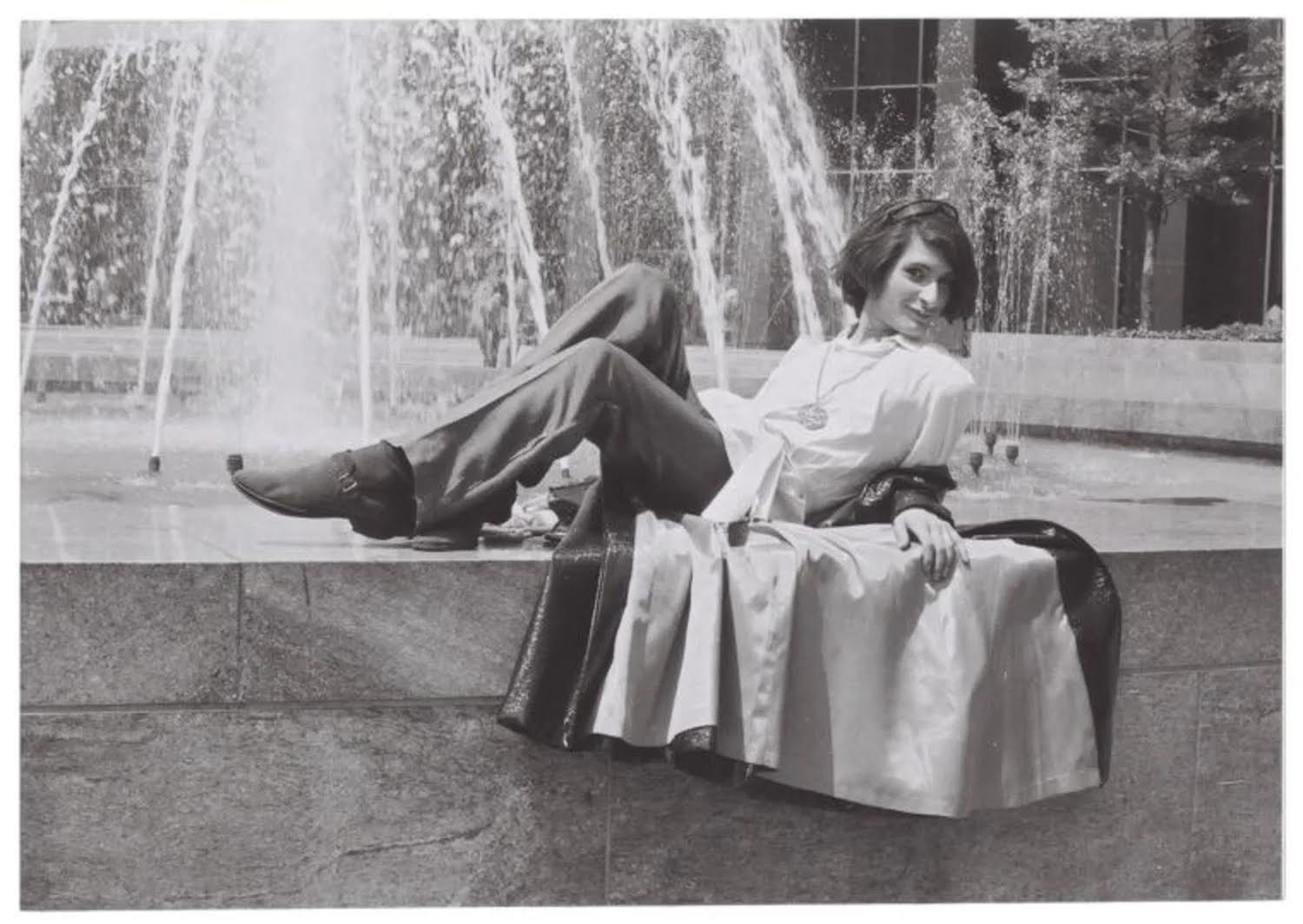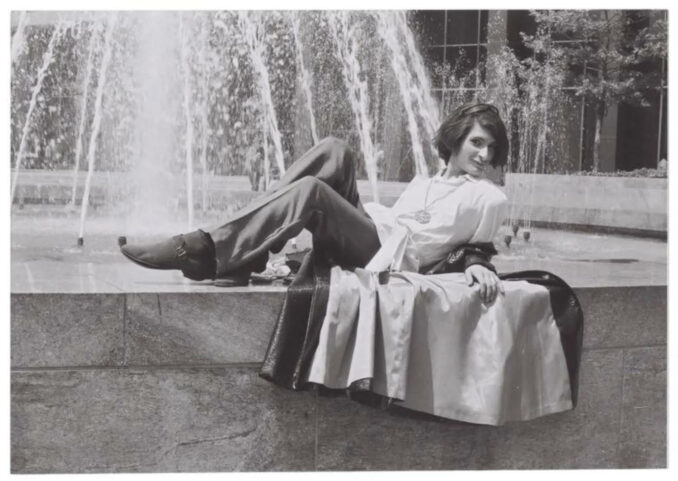

As a 10-year-old queer boy, Sylvia Rivera left her home in 1961 because she was rejected by the grandmother who was raising her. While she identified as an effeminate boy until the late 1960s, she eventually identified as a drag queen, then a “transvestite,” and lastly as transgender. Rivera was forced, for survival, to subsist as a street full service sex worker. Even in the modern day, many LGBTQIA2S+ youth — especially youth of color assigned male at birth — are forced to subsist as sex workers, due to homophobia and transphobia at home.
Street Transvestite Action Revolutionaries — later called the Street Transgender Action Revolutionaries — was formed in 1970 by Rivera and Marsha P. Johnson. STAR was not afraid of the idea of picking up the gun to liberate queer people. This put the group squarely in league with other revolutionaries who acknowledged that the United States would not change without revolutionary violence. STAR created a place for trans and gender non-conforming people to live in New York, free of the mistreatment of others.
On June 28, 1969, the New York Police Department’s Morals Squad — a squad dedicated to harassing queer people, drug addicts and sex workers — either didn’t get the message that the NYPD’s bribe was paid or they didn’t care. At that time many gay bars were owned by mobsters, who paid off the NYPD so the bars could stay open and make money by exploiting the LGBTQIA2S+ community.
The cops raided the Stonewall Inn, a bar that was patronized by trans women, drag queens, butch lesbians, gay men, and the occasional heterosexual radical who supported queer rights. Back then, most heterosexual supporters of queer rights were also political radicals: socialists, Marxist-Leninists, trade unionists and others.

Stonewall was no stranger to raids. What would typically happen is that the gay men, butch lesbians and trans people would be sorted into groups. Some were taken to jail and the rest would wait for the mob to reopen the bar because members of the NYPD were in the bar owners’ pocket.
This night, though, was different. People were upset with the police and decided to make their feelings known. People were fighting back against the cops and Rivera was no exception. Other people, such as Marsha P. Johnson, Jackie Hormona, Stormé DeLarverie, Zazu Nova, and others, were there battling the fascist force.
As time progressed, more bars emptied, more queers rallied, and heterosexual radicals, and even heterosexual homeless people, came forward to send a clear message to the NYPD. By her accounts, Rivera had to be told how to use a Molotov cocktail, but use it she did! The story of Stonewall from there is well known, but her life extends beyond it.
A long revolutionary history
In fact, Rivera’s life would be plenty exciting even if Stonewall hadn’t happened. She fought for queer and trans people; she raised the issue of queerness and transness with the Black Panther Party and the Young Lords Party. She got radicals who were not queer to support the LGBTQIA2S+ community and even convinced queerphobes and transphobes to change their thinking and support the fight for liberation.
Rivera had no problem taking the “gay” movement to task when it let down the trans community. After the 2000 murder of Amanda Milan, a Black trans woman, in Times Square in New York City, she called the community out for demonstrating for Matthew Shepard (a gay man murdered by bigots in Wyoming), but not for Milan. Rivera organized actions calling for justice and in remembrance of Milan.
When the Human Rights Campaign refused to endorse the actions regarding Amanda Milan, she dragged them to hell and back to remind them of the fact that trans people sacrificed a great deal for the cause of queer liberation and didn’t deserve being abandoned in that way.
Like other revolutionaries, Sylvia put up with immense personal political pressure to stay in the background, to hide who she was because non-revolutionary queer people merely wanted the appearance of normalcy rather than true liberation. In 1973, she fought to remind queer people that we — trans women — were being raped and abused on the street and in jails and that we were fighting for what were then called “sex changes.”
Many in the movement for queer rights merely want to be “normal,” i.e, like heterosexual or cisgender people. Sylvia knew that this wasn’t enough. She knew that for all queer people to be free, they had to take revolutionary action. We fight now, in her name, all across the U.S. and the world.
The following is Part 2 of a talk given by the author to a meeting…
Boston Students, professors and workers are confronting the Trump administration’s fascist crackdown at universities across…
Philadelphia Within days of Swarthmore students reviving a pro-Palestinian encampment on April 30, police arrested…
The No More 24 Campaign held a rally in front of City Hall on…
Thessaloniki, Greece Two years ago there was a catastrophic accident on the railroad line that…
Download the PDF Black and white version In over 1,000 U.S. cities Workers mobilized for…